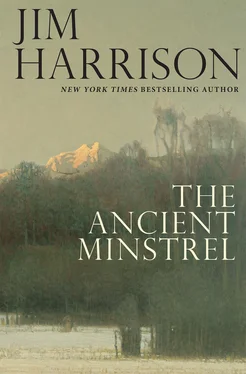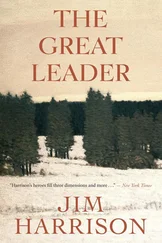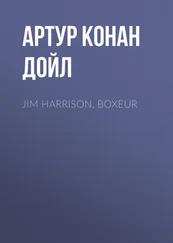Catherine graduated from Barnard in New York City, the female adjunct of Columbia, in 1952. Her mother had a New York apartment (lavish at that) at the same time and relentlessly stuck her nose in Catherine’s business whenever possible, which was a problem. She spent an entire winter in New York not calling her mother a single time. Alicia pretended to be bereft.
Mother divorced Father after the war and married the man who owned the yacht that had taken her from England to Newport during the war. Catherine came to suspect it didn’t take her mother long to seduce him. She had also discovered another secret about her father aside from his affair with the divorcée, whom she’d seen and didn’t think very attractive. Maybe she was nicer to him than her mother, who was rarely acidic with her children but could be merciless toward her husband, particularly when they were drinking. On pleasant summer mornings Father would have his coffee out on a picnic table in the backyard under an oak near the hedge. He always took along his red journal or notebook and didn’t want to be disturbed. One morning when Catherine was in her last year at Barnard he rushed off and forgot the journal on the table and she noticed it when she went out to the hedge to check a yellow warbler nest. It was wrong but she couldn’t help snooping. To her shock the journal was full of poems he had written. What an unlikely poet this small town banker and bullying father was, she thought. She saw that most of the poems were imitations, not very good, of the English Romantic period of Wordsworth and Shelley but a few terse short ones were fair to good. In general, however, he was too flowery and should read Wallace Stevens, she thought, or William Carlos Williams, a personal favorite of hers.
She wondered how often people had secret obsessions that never saw public daylight. Who acted less “poetic” than her father? Did anyone know besides him? She doubted it. She later read a writer who said, “There must be freedom before there can be freedom.” It sounded like nonsense but she thought she understood that we must be ready for our obsessions when they arrive. Like her own interest in chickens. Mother once told her that when she was about two she put her down in the yard while she was hanging wet clothes on the clothesline. She turned to check on Catherine and a hen was sleeping on her lap and she was petting the cozy hen with her tiny hand. She dated this as the beginning of Catherine’s chicken obsession but Catherine herself viewed it as far more gradual. And her first move in the barnyard when she first learned to walk was to follow the chickens, getting their poop on her baby shoes. Grandmother tried to stop her but she became distraught so they bought tiny rubber boots they could wash off with the hose. In her eighties she still enjoyed tottering out to feed her hens. They pretended they were interested in her until she threw their food, the scratch, and then they only chased their meal. It was the same when she fed the pigs or calves skim milk, which was left over after the cream when they put milk through the hand-cranked separator. The pigs would watch her approach with eager pig smiles and then she’d pour the skim milk into their trough and they’d be all business. The calves in their pen would mooch up to her like long-lost friends, licking her arms with their rough tongues, and then she’d pour the milk and they’d be at it though not nearly as sloppily as the pigs. Calves would at least look up and around during their meal but not pigs. Compared with both, the chickens were methodical but diffident eaters with more faith apparently in future eating.
Her clue to Father’s poetry writing was books. When she and her brother Bobby were quite young her father had given them a set of the twelve-volume My Book House saying rather obliquely that books had meant a lot to him as a child. She knew his own childhood library was still in his room in a glass-fronted bookcase so she wondered why he just didn’t give them his books, but stayed shy of asking the question guessing there was some kind of emotional involvement as we have for our few precious things.
The twelve volumes of My Book House were geared to gradually ascending age beginning with nursery rhymes like “Pease porridge hot, pease porridge cold, pease porridge in the pot nine days old.” Catherine ignored the logic of this progression and read them straight through at age ten, though the late volumes were a little difficult at the time, full of involved folklore and world mythology. The set also fueled her interest in American Indians and one of her own precious things was the small collection of arrowheads and three spear points she had found on the farm. Catherine felt sure reading had fed her father’s early interest in poetry. What schizophrenia must have been involved in his later career in economics and banking, but then he had always seemed a man whose character was composed of carefully separated slices. His children and wife never received the tenderness he showed to his English setter bitches Lisa and Clare. Only once had he owned a male bird dog, named Bozo, a rambunctious nitwit who hurled himself over a line of bushes out near the quarry, plummeting downward more than a hundred feet. Father said that only a male dog would jump over something without knowing what was on the other side. After Bozo he owned only females.
But what ultimately carried a man who spent a lifetime writing poetry in secret? We are a mystery. At Barnard and enmeshed in the speedy life of New York Catherine found that around Easter she still believed in the Resurrection as if she could still see the contrail of Jesus rising from death to the heavens. And on spring vacation rather than go to a seaside rental with her wealthy friends she went home to work on her term paper on Kierkegaard and to feed chickens.
It was sheer paradise in England to be out of the Tube station and on a farm. At Grandma’s request she’d go next door nearly a mile and read to a farm couple’s son who as a Francophile had signed up early in the war and lost a hand and a leg and had his vision impaired in the defense of Paris. Catherine would read to him for an hour or so and then have a cup of tea or a glass of beer and chat for a while with him. He didn’t want to hear English classics which he knew but French and some American novels when she could find them. Luckily a rich nobleman near the local village heard about their book plight and gave them access to his library. Her wounded neighbor didn’t care for Hemingway but loved Faulkner’s Light in August or the sonorities of Absalom, Absalom which made her breathless to read. The young man Tim was understandably embittered, a farmer’s son who would never be able to effectively farm himself. One day when his parents were gone he asked to see Catherine in the nude. She was nearly fourteen at the time and had been in England for several years now. She considered his request and thought there was no reason not to so she quickly stripped but then he started crying. Later, when he had calmed down with a large whiskey he tried to explain himself, saying that he felt “dismembered” and that sexual love was forever out of his range. Catherine was a young innocent and disagreed saying, “I thought you just needed that one thing to make love, a penis,” and he laughed at her matter-of-factness. He said that losing a hand and leg meant that he could never be a real farmer, or a real lover. That was that. She could see that it was a matter of shame more than anything else.
After the bombings ended Grandma had returned to London to be with Grandfather and the years rolled on slowly with the entire world at war. It was consoling to live on the farm. Her mother would have preferred she come home, but transatlantic travel was now impossible and Catherine was enrolled in a British school and thriving. As an American she was also worried about the Japanese while the local English were obsessed with the possibility of a German invasion. At their dawn breakfast each day her great-uncle Harold, Winnie’s husband, was glued to the radio listening to war news. One morning he beamed at her and yelled, “Thank God for the Yanks.” The American forces had managed to make a German invasion of England unlikely indeed. Catherine was in love with Winston Churchill’s resonant voice whether he was saying something important or not.
Читать дальше












